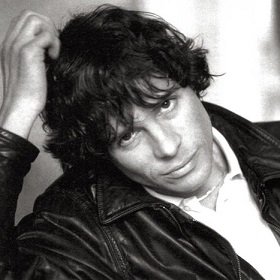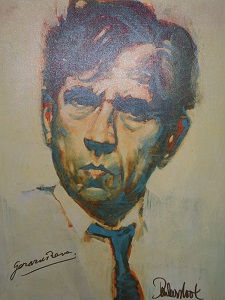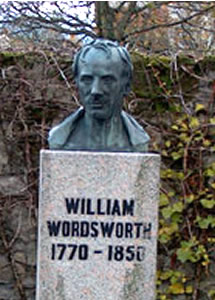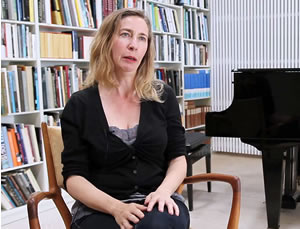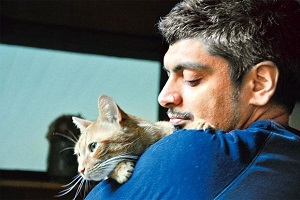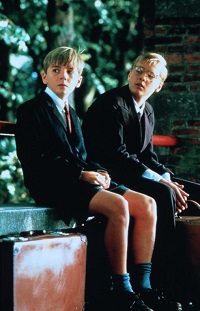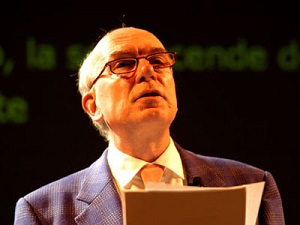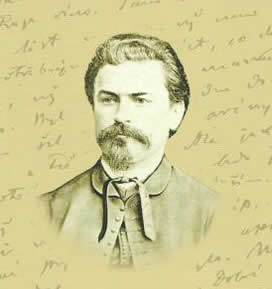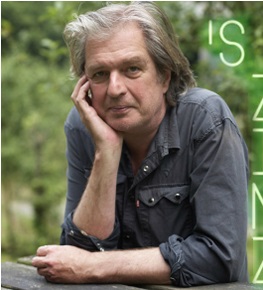De Franse dichter Charles Baudelaire werd geboren in Parijs op 9 april 1821. Zie ook alle tags voor Charles Baudelaire op dit blog.
Bohémiens en voyage
La tribu prophétique aux prunelles ardentes
Hier s’est mise en route, emportant ses petits
Sur son dos, ou livrant à leurs fiers appétits
Le trésor toujours prêt des mamelles pendantes.
Les hommes vont à pied sous leurs armes luisantes
Le long des chariots où les leurs sont blottis,
Promenant sur le ciel des yeux appesantis
Par le morne regret des chimères absentes.
Du fond de son réduit sablonneux le grillon,
Les regardant passer, redouble sa chanson ;
Cybèle, qui les aime, augmente ses verdures,
Fait couler le rocher et fleurir le désert
Devant ces voyageurs, pour lesquels est ouvert
L’empire familier des ténèbres futures.
Cats
Sages austere and fervent lovers both,
In their ripe season, cherish cats, the pride
Of hearths, strong, mild, and to themselves allied
In chilly stealth and sedentary sloth.
Friends both to lust and learning, they frequent
Silence, and love the horror darkness breeds.
Erebus would have chosen them for steeds
To hearses, could their pride to it have bent.
Dreaming, the noble postures they assume
Of sphinxes stretching out into the gloom
That seems to swoon into an endless trance.
Their fertile flanks are full of sparks that tingle,
And particles of gold, like grains of shingle,
Vaguely be-star their pupils as they glance.
Vertaald door Roy Campbell
Die Katzen
Die toll Verliebten und die strengen Weisen
Verehren, wenn die Kraft und Jugend schmolz,
Die Katzen sanft und stark, des Hauses Stolz,
Die fröstelnd, so wie sie, den Herd umkreisen.
Die, so wie sie, Weisheit und Sinnenglut
Und Dunkel lieben, Nacht von Grau’n durchflossen,
Die sich der Orkus hätt’ erwählt zu Rossen,
Stünd’ seinem Dienst zu Kauf ihr stolzes Blut.
Sie gleichen Statuen, wenn sie sinnend kauern,
Den grossen Sphinxen in der Wüste Schauern,
Die ewig dämmern an des Traumes Rand.
Aus ihren Lenden magische Funken sprühen,
Und wie besternt von feinem goldnen Sand
Scheint ihres rätselvollen Auges Glühen.
Vertaald door Therese Robinson
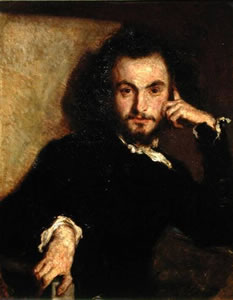
Charles Baudelaire (9 april 1821 – 31 augustus 1867)
Portret door Emile Deroy, 1844

